AARP Hearing Center

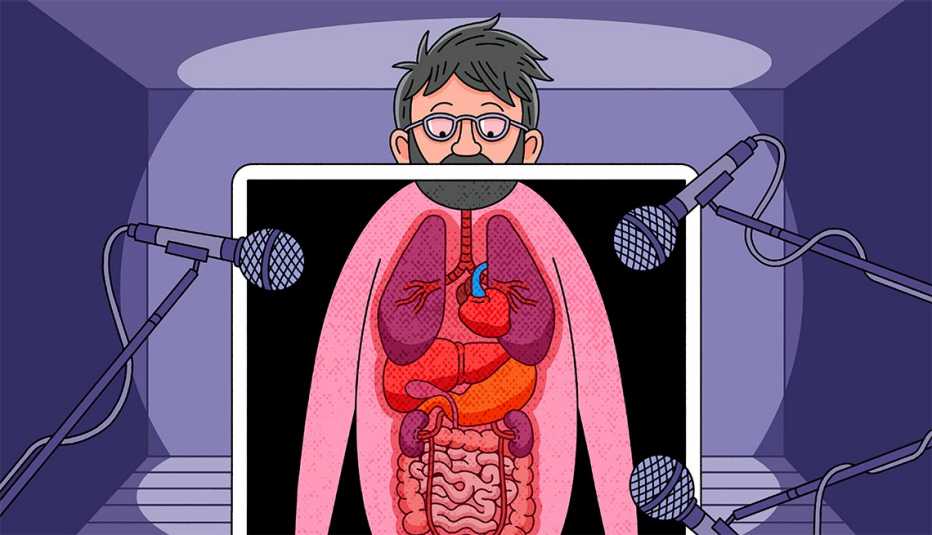
It’s always disconcerting when a peer passes away. Yes, there’s the grieving. But it’s also natural to look at the untimely deaths of others for clues about our own health. What got them in the end? Were they seriously overweight, lifetime smokers? Were they mostly ... just like me?
So you can imagine my surprise upon learning that a guy I’d known since grade school had died from liver disease. I hadn’t paid much attention to my liver; because of my family history, my heart and brain have always been my biggest concerns. But what if I’ve been ignoring the wrong organs? How often do I consider my liver or, for that matter, my gallbladder, lungs, intestines or stomach?
Maybe my friend’s death was a canary in my personal health coal mine. I needed to take my other organs seriously. What could I do to extend their shelf life — and by extension, my own? I set out to have those difficult conversations. It was like the movie Fantastic Voyage but with a My Dinner With André vibe. Here’s what I learned..
Your Liver

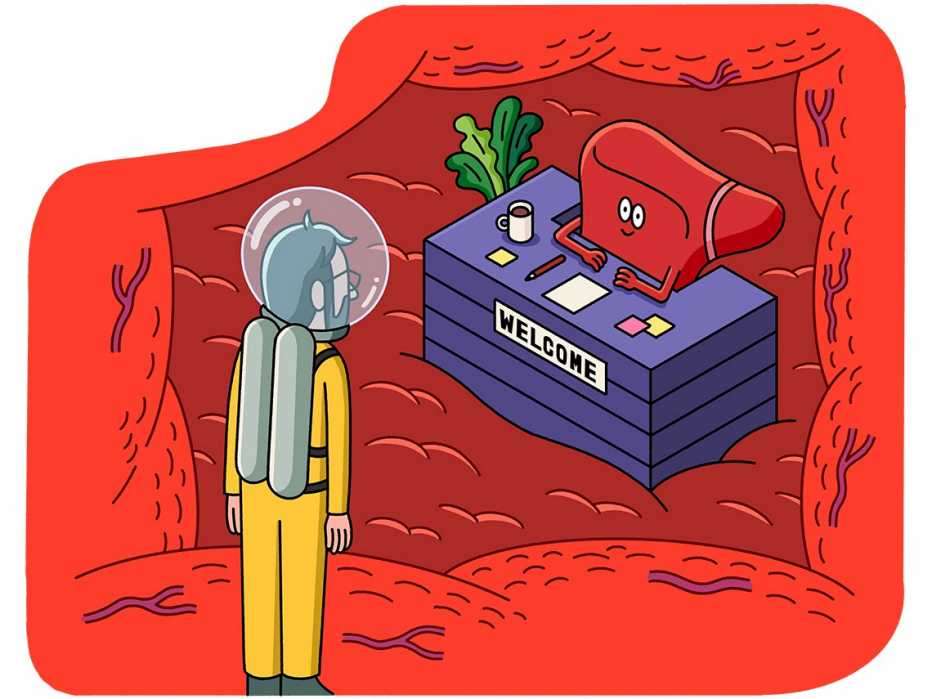
The Body’s Front Desk
Liver: Can I help you?
Me: Oh, sorry, I was just …
L: Hold it right there! Nobody gets backstage body access without going through me. Food, booze, medications, nobody. [Eyes me up and down.] OK, you seem mostly nontoxic.
You’re the gatekeeper here?
L: [Rolls eyes.] Yeah, I man the front desk while doing more than 500 different jobs. I remove toxins from your blood; I make bile to digest fat; I store sugar for energy; I turn extra glucose into glycogen; I make protein for blood plasma. But the brain gets all the glory. They put parts of Einstein’s brain in a museum. His liver? No. But I guarantee you, without his liver making glucose available to his brain, Einstein wouldn’t have known his E from his MC squared.
How can I help, other than cutting back on booze?
L: Well try not to drink like you’re a Beat poet from the ’50s. But that cheesesteak isn’t doing me any favors either. For me to be healthy, you need to watch your weight and cholesterol. Ask your doctor about testing for hepatitis C even if you have no symptoms. Eat high-fiber foods like whole grains and fruits and veggies. Exercise.
OK. So basically, you don’t like anything fun.
L: Maybe if I got a day off. Listen, have that cheesesteak every once in a while, but maybe don’t make it a regular thing. Have a few cocktails during the week — just try not to have them all at once. Pretend your body is a high-end hotel and nobody gets upstairs without me checking their credentials. All I’m asking is, don’t invite all your rowdiest friends on the same night. I only have so many hands.
Technically you don’t have any hands.
L: Hey, you’re the one talking to an anthropomorphic internal organ.
How do we know if you’re overwhelmed? Is that what liver spots are about?
L: Nah, that’s a myth. Those spots are actually just skin blemishes caused by sun damage. Nothing to do with me! If you’re looking for symptoms of cirrhosis or fatty liver, look out for things like swollen legs and ankles, jaundice, abdominal pain, extreme fatigue, dark urine or musty breath.
Musty breath?
L: Yeah. If your oral hygiene is OK but your breath still smells like rotten eggs and garlic, I am not doing OK. And it won’t always be that obvious, especially at the start of liver disease. It’s not a bad idea to get a hepatic function test as part of your annual metabolic panel. Don’t wait till I start pounding on your rib cage in protest to see if there’s something wrong.
Your Lungs

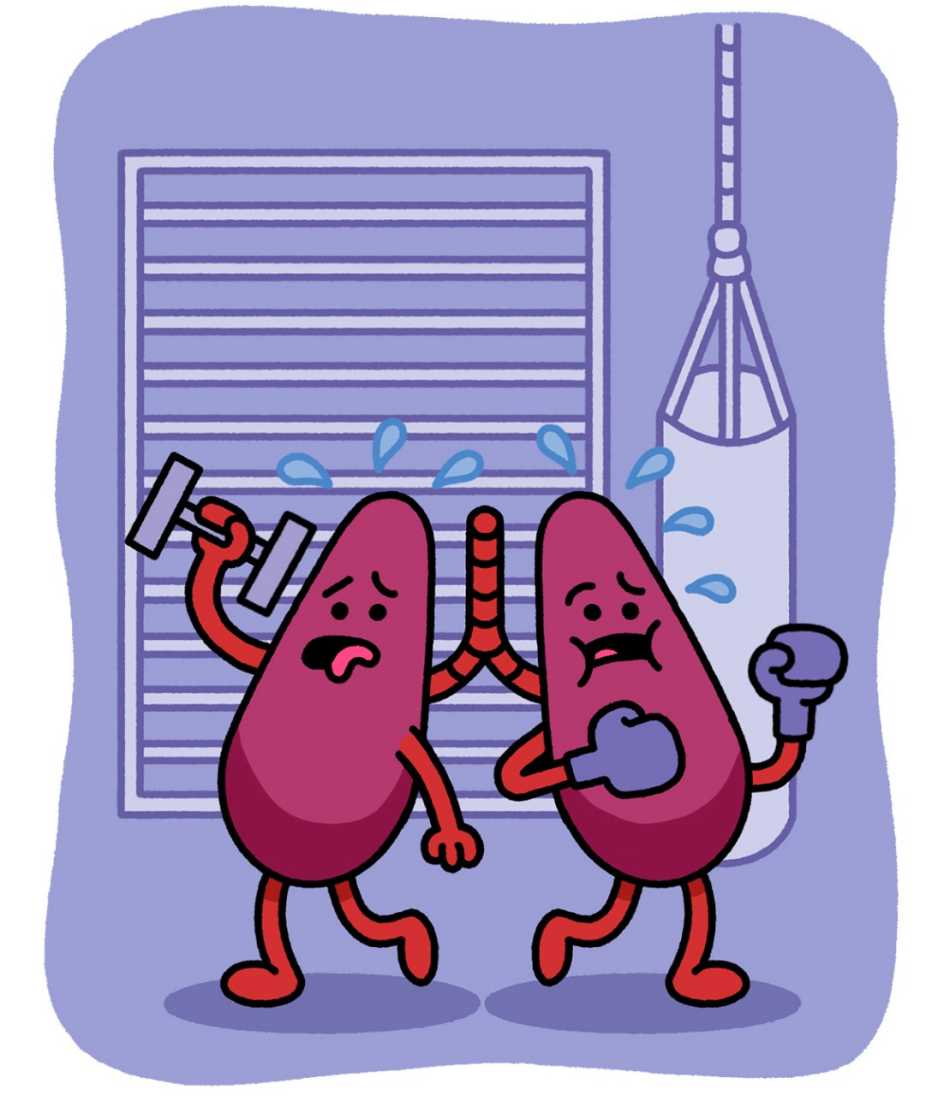
The Busiest Organs
Me: Hello. I wonder if I could —
Right lung: No time to talk. Very busy! We’re taking 17,000 breaths a day! Six million breaths a year!
Hold on: A cough’s coming. [The room reverberates like it’s an earthquake.]
Yikes! Am I sick?
Left lung: No, it’s perfectly normal to cough occasionally throughout the day — unless you’re a smoker. Smoking is still the leading cause of preventable death in the U.S. And let’s not even get started on e-cigarettes. Plus, there are other threats — everything from air pollution to secondhand smoke to radon. Your best defense is a good offense.
Which means what?
RL: Breathe! Anything that fills us with oxygen is gonna help us keep healthy. Take a brisk walk. Sing along with the radio. Blow up a balloon. Or just laugh. Laughter gets rid of all the stale air so we can pull in more fresh oxygen. You wanna hear a joke? What do you call a lung thief? [Dramatic pause.] Breathtaking!
LL: I’m sorry, we need to get back to work. [Whispers to right lung.] We’ll discuss this later.



































































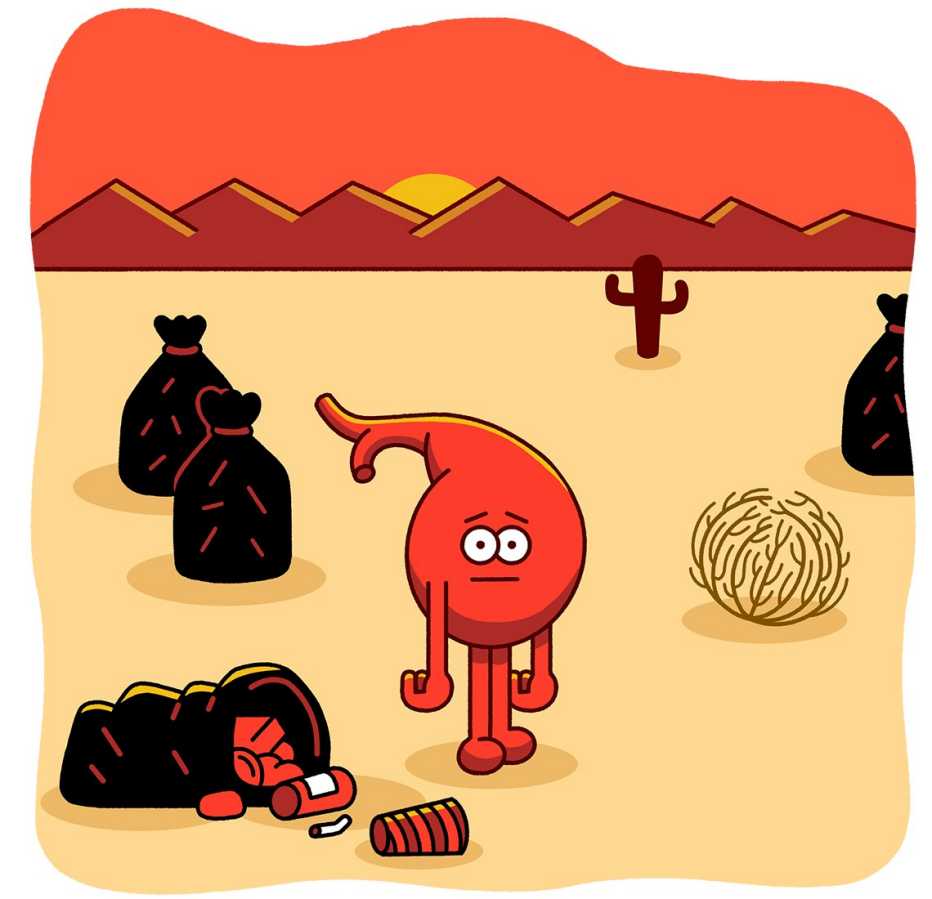

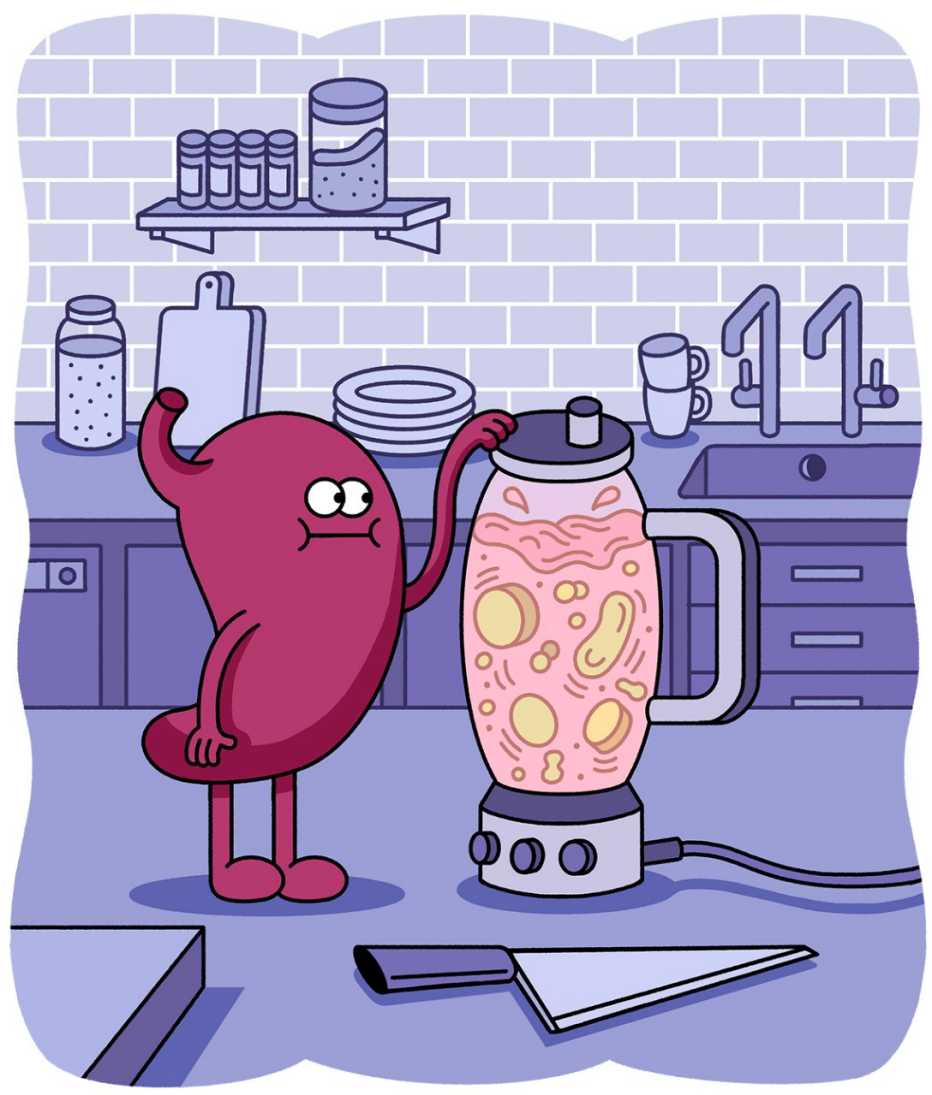
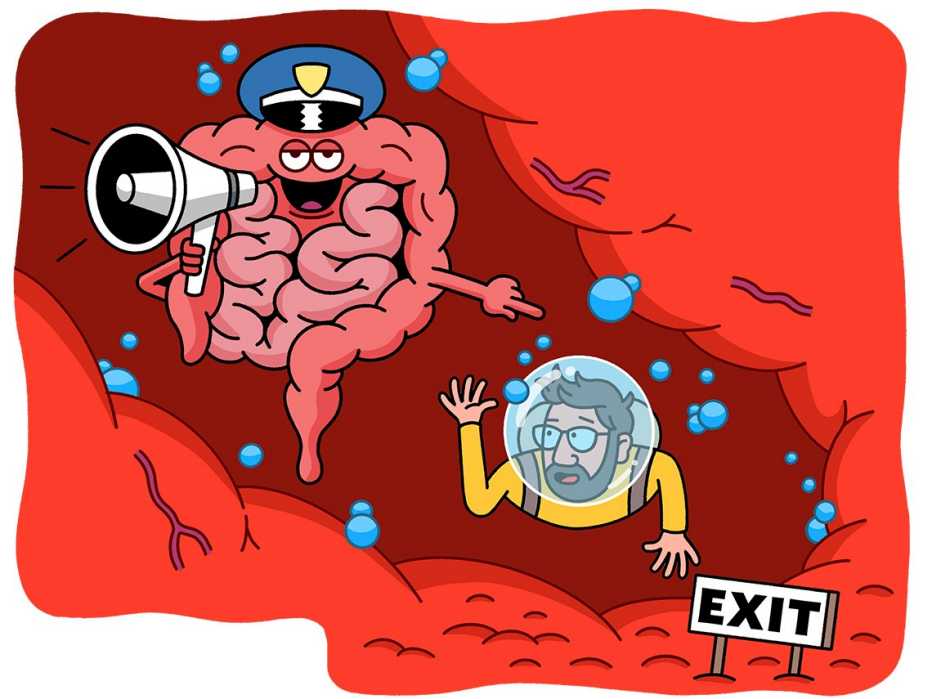


More on Health
8 Things to Do at 50+ to Help You Live Longer
It’s never too late to make small changes to improve your health
7 Types of Medication That Cause Bloating
Feeling puffy, swollen and bloated? Give yourself a gut check
20 Expert Tips for Losing Weight After 50
Tactics for mastering your metabolism and shaving off those extra pounds